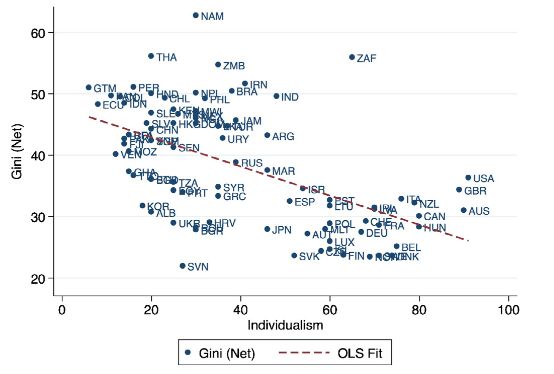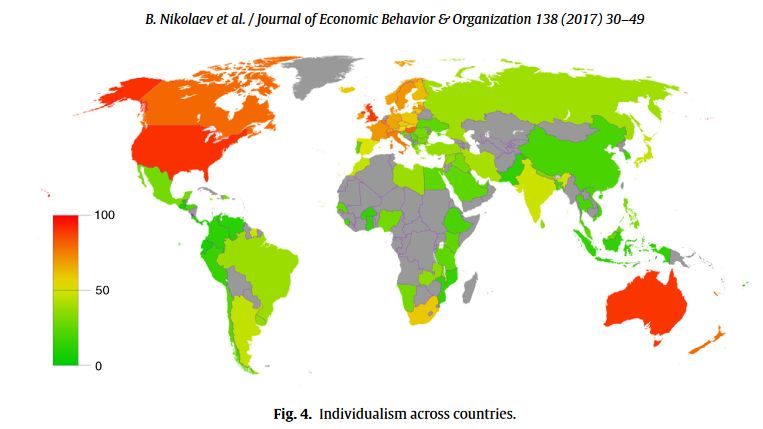Individualism and inequality
This is an interesting paper (HT: @nonicoc )
Nikolaev, Boris, Christopher Boudreaux, and Rauf Salahodjaev. 2017. “Are Individualistic Societies Less Equal? Evidence from the Parasite Stress Theory of Values." Journal of Economic Behavior & Organization 138: 30–49. https://www.sciencedirect.com/science/article/pii/S016726811730094X (May 18, 2018).
They start by noting that...
In individualistic societies the ties between individuals are loose and everyone is expected to look after themselves and their immediate family ( Hofstede et al., 1991 ). Such societies place value on personal freedom, self-reliance, creative expression, intellectual and affective autonomy, minimal government intervention, and reward individual accomplishments with higher social status. Higher rewards generate productivity that makes societies richer by channeling entrepreneurial talent into experimentation and innovation ( Gorodnichenko and Roland, 2012 ), the newly created wealth is inevitably distributed unevenly as entrepreneurs enter new markets and generate extraordinary wealth for themselves.
However, the country level correlation between individualism and inequality is the opposite:

The correlation survives several controls and also an IV-analysis where:
the historical prevalence of infectious diseases, [is used] as a source of exogenous variation for individualistic values
The authors conclude:
even if people in more individualistic cultures are more likely to accept and encourage greater individual differences, they end up living in far more equal societies at the end of the day
My comment:
I wish the authors had explored the role of trust a bit more. We suggest (and find support that) trust causes a more eqaul distribution in a related paper:
Bergh, Andreas, and Christian Bjørnskov. 2014. “Trust, Welfare States and Income Equality: Sorting out the Causality." European Journal of Political Economy 35: 183–99. http://dx.doi.org/10.1016/j.ejpoleco.2014.06.002.
As the map reveals, trust and individualism is closely related

comments powered by Disqus